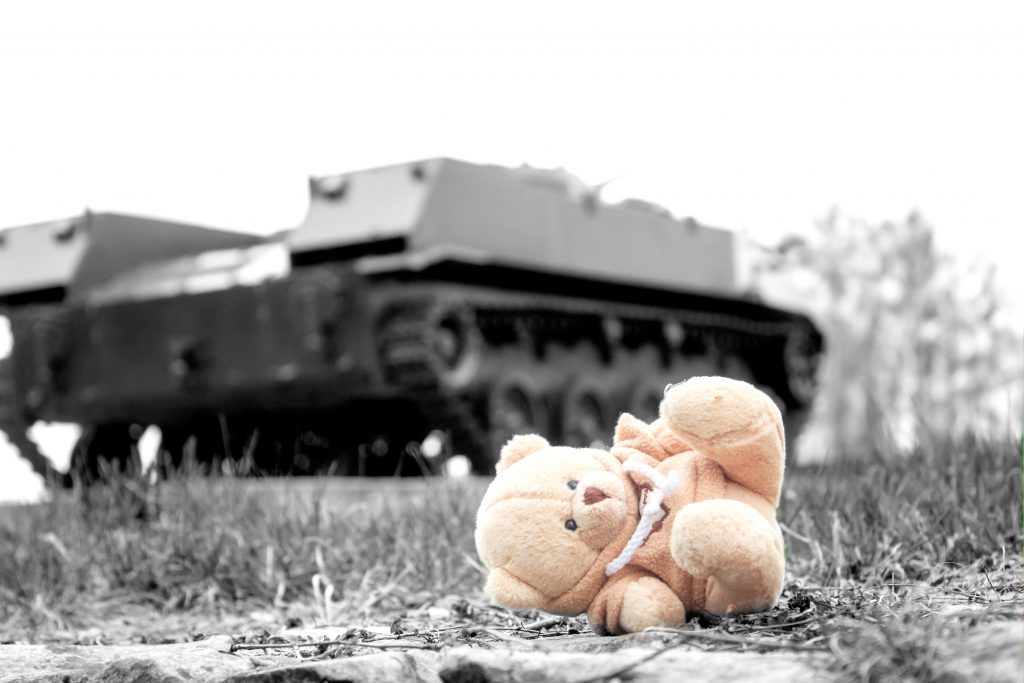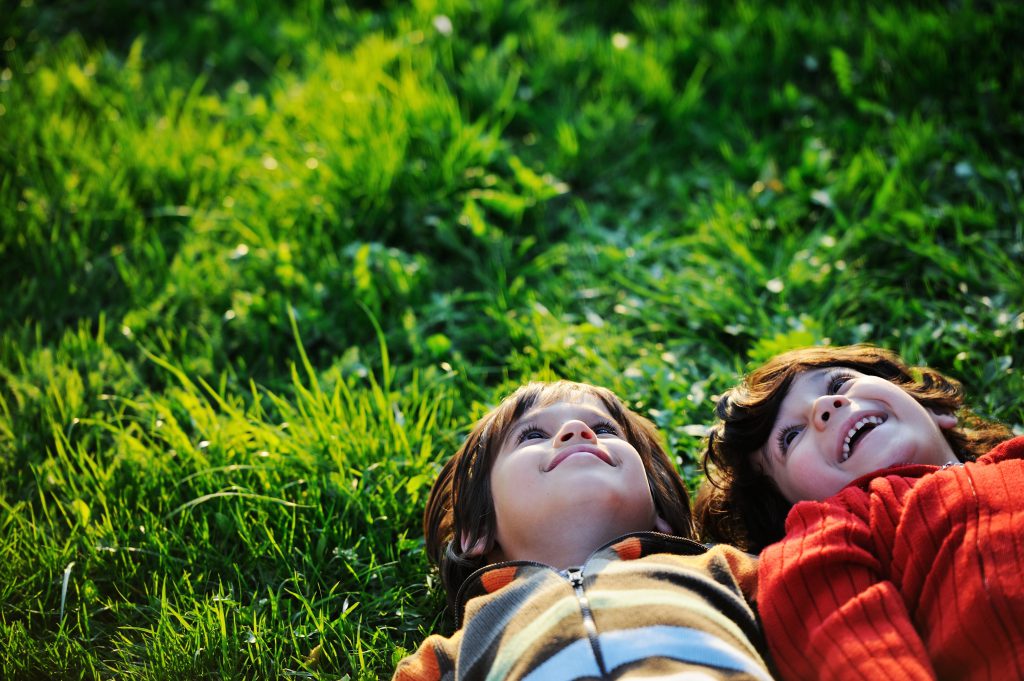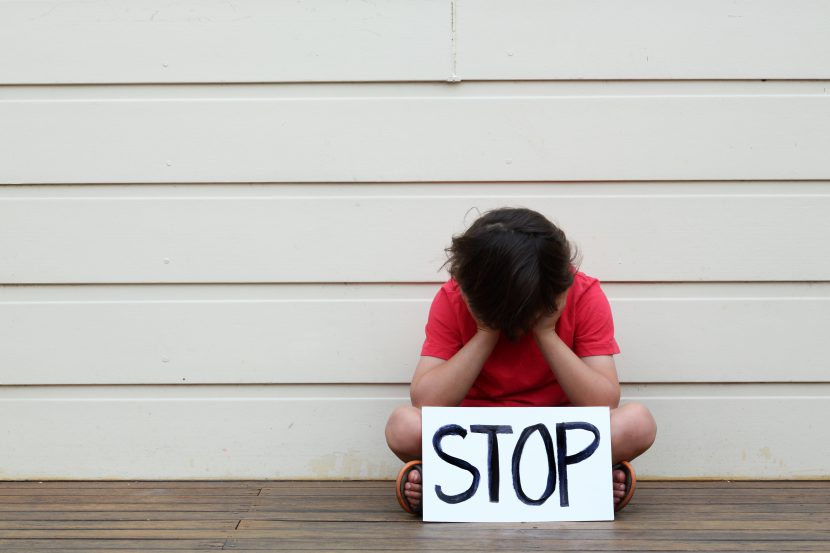In occasion of the 7th official observance of the International Day for the Elimination of Sexual Violence in Conflict, Special Representative of the Secretary-General for Children and Armed Conflict Virginia Gamba addressed the issue of conflict-related sexual violence against children within the context of the COVID-19 pandemic, highlighting the worrisome situation of children born of rape. Indeed, as the recently published 2020 Report shows, following the Coronavirus emergency, there was a dramatic increase in verified cases of sexual violence against children in armed conflict.
International Day for the Elimination of Sexual Violence in Conflict
On Saturday, June 19, 2021, we celebrated the International Day for the Elimination of Sexual Violence in Conflict. This date was chosen in 2015 (UNGA, 2015) to commemorate the day in which the UN Security Council formally denounced rape and other forms of sexual violence as “a tactic of war and an impediment to peacebuilding” (UNSC, 2008). Co-hosted by the Office of the SRSG on Sexual Violence in Conflict, the Office of the SRSG on Children and Armed Conflict and the Permanent Mission of Argentina to the United Nations, a virtual event was held in honor of the survivors of sexual violence in conflict and of those working to support victims and end such atrocities. The focus was on strategies to address specific rights and needs of survivors, particularly in light of the health crisis, and how to integrate the issue of conflict-related violence in COVID-19 response and recovery plans.
The distressful situation in 2020
Rape and sexual violence against children is one of the six grave violations monitored by the UN through the Country Task Forces on Monitoring and Reporting (CTDMR) as part of the Monitoring and Reporting Mechanism (MRM) established in 2005 (UNSC, 2005). In 2019 there were 735 cases of sexual violence in the 19 situations covered by the Special Representative’s agenda (OSRSG CAC, 2021). In 2020 these figures rose by 70%, with 98% of victims being girls (UNSC, 2021). Indeed the COVID-19 pandemic has had a series of consequences on children in armed conflicts with an increase in actual violations, reduced accountability and punishment, weakened monitoring and reporting as well as the halting of survivor service provision.
Despite the international community’s call for a global ceasefire, since the beginning of the pandemic, new conflicts have started and ongoing ones have heightened. Grave violations in 2020 reached 26.500, including recruitment and use, maiming and killing, rape and other forms of sexual violence, attacks on schools and hospitals and denial of humanitarian access (UNSC, 2021). Abduction, recruitment and use of children by conflict parties also increased following schools closure and the economic crisis.

The Secretary General’s 2020 Report stated that these violations do not affect boys and girls in the same way: while boys are more likely to be subject to recruitment and use (85% of cases), girls remain more vulnerable to rape and other forms of sexual violence (UNSC, 2021). This finding supports Gamba’s remark on the need for gender-specific measures for both prevention and survivors’ service provision.
Sexual violence in conflict (SVC) within the context of the COVID-19 pandemic
According to a recent UN study, factors such as the suspension of medical, psychosocial and legal services, reduced mobility and increased isolation have increased the vulnerability of children in situations of armed conflict to rape and other forms of sexual violence (OSRSG CAC, 2021). Indeed, with the health emergency, international organizations postponed engagements and activities on the field, including Action Plans and agreements with conflict parties. Drop-in centers were closed, facilities reduced their capabilities and there were delays in screenings and family reunifications.
Absence of services, together with stigmatization, cultural norms, fear of punishment, lockdown measures and safety concerns also prevented victims of sexual violence from reporting it and seeking support. As for monitoring, despite most CTFMRs were able to adapt and resume their work after a few months into the health emergency, more sensitive types of violations such as sexual violence were difficult to monitor remotely, hence verification of cases remains retrospective (OSRSG CAC, 2021).
Another repercussion of the health emergency is the enhanced difficulty in holding perpetrators of rape and other forms of sexual violence accountable. Secretary General António Guterres emphasized in fact the need to foster measures to encourage survivors to “safely come forward and seek redress” (UN News, 2021) .
Sexual violence in conflict is an already underreported phenomenon. With the recent disruptions to services, monitoring and reporting, ensuring a safe environment and an efficient punishment mechanism has become even more important in order to protect the most vulnerable and halt the culture of impunity.
Lack of support for children born of rape
At the virtual event for the International Day for the Elimination of Sexual Violence in Conflict, Virginia Gamba also expressed a special concern for the situation of children born of rape in armed conflicts (UN News, 2021). She also confirmed the commitment of the Secretary General to compiling a special report on the topic later this year. Indeed, despite being recognized by the international community as victims of sexual violence in conflict, children born on wartime rape lack of a comprehensive legal framework able to adequately protect them.
This topic is often overlooked, yet children born of sexual violence are “doubly victimized: they are victims of conflict and denied the actions that might assist in their recovery” (OSRSG CAC, 2020), said Gamba at the 44th Session of the Human Rights Council. These children bear the consequences of conflict from birth all throughout adulthood due to stigmatization and persecution.
For example, in many African countries like Rwanda and the Democratic Republic of Congo, the concept of identity is intertwined with that of community (especially in the case of minorities) and citizenship rights are inherited through the father (Obbo, 2020). Consequently, births of children born of wartime rape may not be registered; they may be shamed and isolated from the community due to stigma, denied access to education and even experience physical violence (Hall, 2018).
This is yet another grave consequence of sexual violence in conflict, which is often weaponized and the implications thereof reach far beyond the end of the dispute. In the attempt to protect children, particularly those born of rape in wartime, Virginia Gamba highlighted the need to strengthen accountability measure and essential services, including monitoring and reporting, by providing sufficient human and financial resources (UN News, 2021).
An opportunity to “build back better”
Despite the worrisome number we have seen, progress has been made in the last year, with dialogues among the UN and conflict parties advancing, 35 new commitments being reached, 12.643 children freed and Action Plans signed in Myanmar and South Sudan (UN News, 2021). Moreover, as we have mentioned, monitoring and reporting task forces have managed to adapt and carry on their mission to offer assistance to survivors.
As the title of the event for the International Day for the Elimination of Sexual Violence in Conflict says “Building back better: Supporting survivors of conflict-related sexual violence in the context of pandemic recovery”, the pandemic and the recovery plans that are being conceptualized and implemented worldwide provide an opportunity to resolutely counteract problems such as conflict-related sexual violence, especially against children (OSRSG CAC, 2021).
In order to do so, it is pivotal to include survivors in the pandemic-response efforts, facilitate children-seeking redress and provide comprehensive as well as age- and gender-specific services. At the same time, resources should be enhanced to strengthen monitoring and service provision facilities and organizations. Virginia Gamba concluded, “this is an opportunity to stop and reflect on the suffering we are causing our children, who are our future” (UN News, 2021).

Humanium is committed to protect children’s rights and is proud to continue its efforts as part of various working groups and together with its partner organizations to safeguard all children from violence, including conflict-related abuse. If you would like to participate in Humanium’s endeavor towards the realization of children’s rights around the world, subscribe to our newsletter and become a member.
Written by Chiara Baruta
Bibliography:
UNSC. (2005, Jul 26). Res 1612 (2005). Geneva: United Nations.
UNSC. (2008, Jun 19). Res 1820 (2008). Geneva: United Nations.


